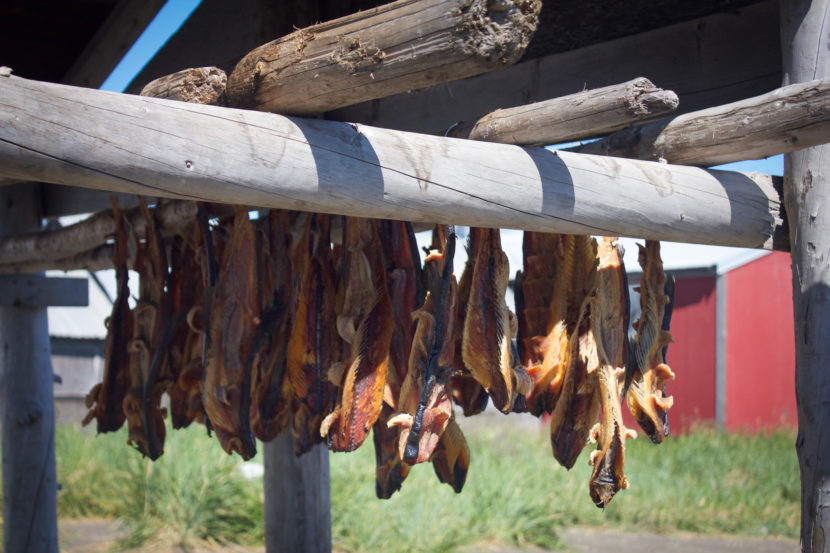
Western Alaska communities have been restricting travel between villages to control the spread of the coronavirus. But in places like Stebbins, that also makes it harder to get groceries.
Stebbins residents typically have to drive to nearby St. Michael, which has an Alaska Commercial Company Store — called the “AC Store” — for groceries. A 12-mile road connects the communities in summer, but when both villages reported positive cases of COVID-19 last month, the road was closed.
Ward Walker is the incident commander for the Stebbins IRA and City of Stebbins.
“It was a little bit of a hardship while the road was closed, but I think we managed to get through it,” said Ward Walker.
The road was closed for about three weeks. After monitoring local spread of COVID-19, the community response teams decided to re-open the road at the start of August.
Walker says they certainly lost a variety of options, in particular their selection of fresh food. But he doesn’t think the community of Stebbins experienced a true food shortage.
“I actually set up that system so that people could purchase food in St. Michael for those three weeks and then have it delivered to the check-point,” said Ward Walker.
While the road was closed, Stebbins residents could go to the border between the two communities and pick up their food orders along the road. But as one Stebbins resident told KNOM, that’s only useful for people who are able to drive the nine miles to the checkpoint.
Shelley Pete, the general manager of the Stebbins Native Store, thinks the community would have had a food shortage without online shopping or the AC store in St. Michael. The only grocery store in Stebbins is operated by ANICA Inc., and Pete says many residents travel to St. Michael because the local Native store struggles to stay stocked. ANICA Inc. did not respond to KNOM’s request for an interview.
Pete said empty shelves were a common sight in Stebbins even before the coronavirus began.
“By the time I send in my order, usually come in four or six, maybe seven days,” he said. “But for my last order it’s been a week overdue, sometimes two weeks overdue until I put in another order.”
Pete isn’t sure if those delays are related to having fewer workers in the warehouses in Anchorage or Unalakleet.
Their food orders come in through all of the regional cargo air carriers, but earlier this spring, Stebbins also lost the service of RAVN Air as a source for cargo and passenger service. Even when they were serviced by many air carriers, Pete says the store still received shipments of moldy produce or food that had thawed out and gone rancid.
With empty food shelves and expensive prices in village stores, it’s difficult for regional residents to prepare for a two-week quarantine by relying on local goods. In Stebbins, resident John Rivers told KNOM that he isn’t relying on the grocery store if there’s another lockdown. Rivers has a freezer he keeps filled with subsistence food instead.
The situation in Stebbins isn’t exactly unique either. On the western side of the Seward Peninsula, many Teller residents travel the 72-mile Nome-Teller highway to purchase groceries and fuel in Nome. The community of less than a hundred is experiencing what Norton Sound Health Corporation considers a small outbreak of the coronavirus. So NSHC responded by sending in care packages as incentives for locals to get tested.
“Those included some grocery food supplies,” said Reba Lean, NSHC’s public relations manager. “Typical grocery items things like eggs, potatoes, peanut butter, snacks. Keeping everyone in the community is just a really good idea right now.”
Both Teller and Stebbins are communities without running water and have received shipments of hand sanitizer and cleaning supplies to deter spread of the virus. Lean said NSHC is prepared to help other Norton Sound communities that experience outbreaks of the virus or whose stores close if workers become sick.
